Our submission to the EC 2025 Rule of Law report
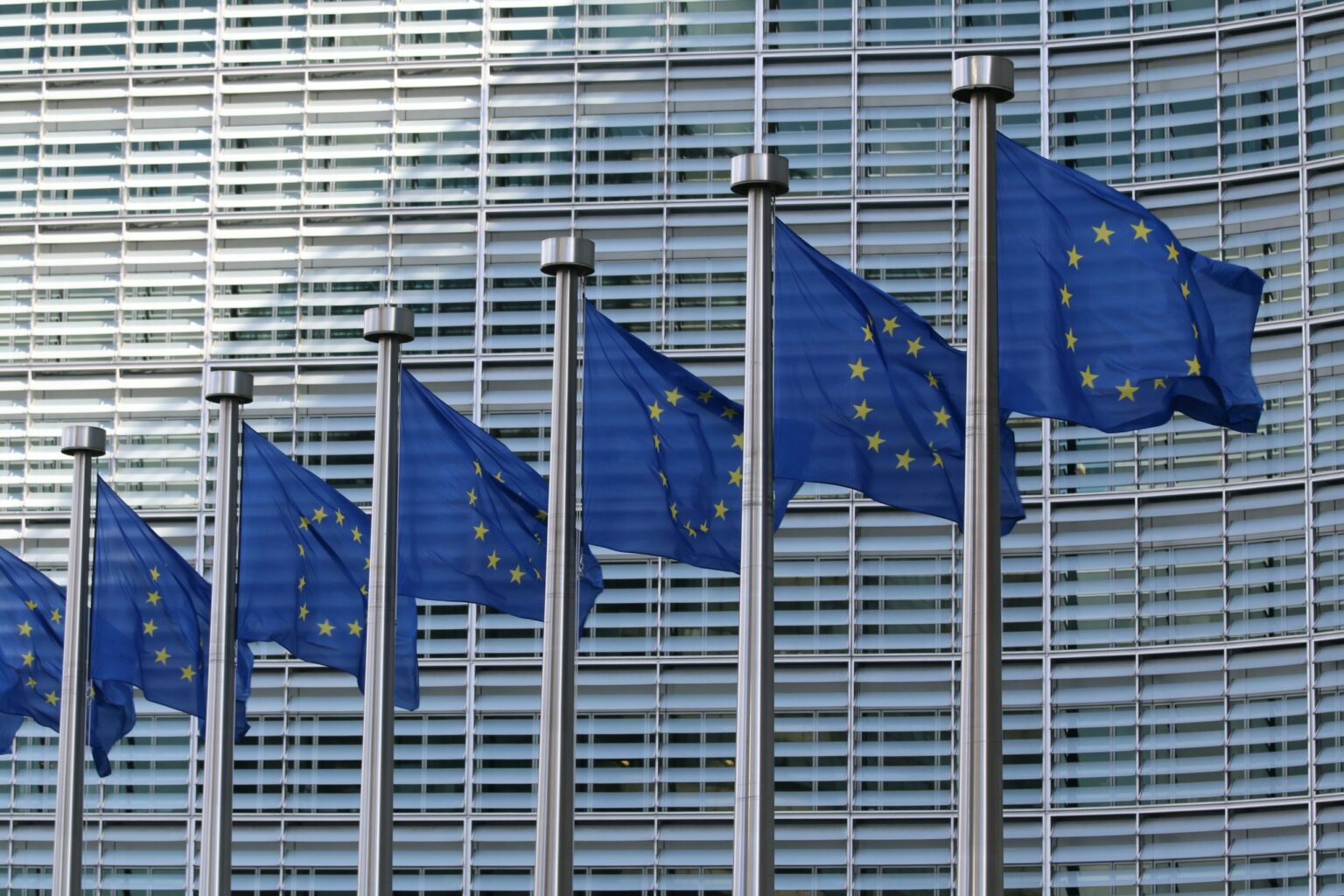
After a year of elections across the EU, threats to democracy and the rule of law are growing both in Europe and globally. Our submission highlights more clearly than ever the connection between these threats and the instrumentalisation of LGBTI people.
Disinformation, hate speech, and discriminatory political discourse have surged in many countries, directly impacting the lives of LGBTI people. At the same time, violence and restrictive legislation against LGBTI individuals are increasing, undermining the rule of law.
The Frontline: TikTok and the Political Earthquake in Romania

Just under two weeks ago in the first round of Romania’s Presidential election, nobody saw the victory of far-right, Russia-leaning Calin Georgescu, who was barely on the radar of the polls. Then, last Sunday, in Romania’s parliamentary elections saw mainstream parties gaining enough seats in parliament to form a government, although the far right has gained substantial ground in the legislature.
Meanwhile potential breaches in campaign finance laws and unfair practices exploiting the use of TikTok’s algorithms were credited to have boosted Georgescu, giving him enormous exposure despite the fact that he was relatively unknown. The European Commission have said they will be investigating whether there was unlawful TikTok interference.
So, what does all this mean for LGBTI people in Romania? How are activists reading the conflicting results of the presidential and parliamentary elections, amid viral anti-LGBTI TikTok videos and the unexpected rise of Calin Georgescu who has previously said he wants to ‘ban homosexuality’? And what does this mean in terms of elections everywhere?
To discuss the questions and implications, we’re joined on The Frontline by Vlad Viski, President of Romania’s community-based LGBT organisation MozaiQ and Stefi Ionescu, board member of ACCEPT Association, which advocates for the human rights of LGBTI people in Romania.
Answering the call to courage: What happened at the 2024 ILGA-Europe Conference

At this year’s ILGA-Europe Annual Conference in Romania, we had three dedicated activist reporters attending sessions across the event, so they could reflect on what was happening right now for the LGBTI movement in Europe and Central Asia. Here is what they found.
The 26th ILGA-Europe Conference, held in Bucharest this October, was a vital meeting ground for activists, leaders, and changemakers from across the LGBTI community, at this particular time in our world. Beyond its extensive sessions and networking opportunities under the theme, The Call to Courage, this year’s event featured the reintroduction of conference reporters—three dedicated activist voices tasked with connecting the threads of reflection, insight, and shared experience throughout the event. These reporters, Rina Rybalko from Ukraine’s Gender Stream, Sarah Arsane of Pride des Banlieues in France, and Andrea Ruggeri from Italy’s Gruppo Trans, shared their expectations, reflections, and key takeaways over the course of the packed three days.
Hope and expectation
Rina approached the conference with hope, acknowledging the uncertainties facing activists but focusing on the potential for solutions. “Since this is my second time at the conference, I know that we will talk about challenges a lot,” she shared. “And I hope that in these discussions we will find together decisions and solutions that we will bring back home to our communities.” This outlook was a testament to the resilience that Ukrainian activists have shown, especially amidst Russia’s ongoing full-scale invasion and its impact on LGBTI communities.
As the conference began, Sarah expressed excitement at the rare opportunity to connect with likeminded people. “I’m really looking forward to meeting LGBTQ+ activists from all over the world and hearing the unique stories and struggles,” she said. Her anticipation highlighted the conference’s role as a space for exchange, learning, and mutual empowerment.
Andrea, acknowledging both the gravity of their work and the community’s strength, spoke with poignant honesty. “Yesterday was not a good day for my country,” they remarked, referring to a newly passed law in Italy that criminalises seeking surrogacy abroad, a move that threatens LGBTI families and sets a concerning precedent. This difficult reality highlighted their hope to find emotional and political support while drawing strength from shared experiences.
Reflections during the conference
As the conference unfolded, each reporter shared insights into their evolving experiences. For Sarah, moments of connection stood out. Reflecting on the importance of unity and exploring vulnerabilities to promote growth, she said, “I particularly enjoyed the discussions on the various issues facing our communities. Being a Muslim woman, a racialised lesbian, and from working-class neighbourhoods, this particularly moved me.”
Rina was moved by the power of collective communication. “The highlight for me was communication—panel discussions, workshops, and networking, which was meaningful, fruitful, and sometimes challenging,” she noted. This understanding emphasised the importance of shared spaces where LGBTI voices can overcome barriers, address urgent needs, and build alliances.
Andrea’s reflections captured the diverse and layered nature of the Conference. “In one room, people are getting pragmatic by discussing how to tackle disinformation campaigns; in another, others are sharing how resilience keeps them grounded,” they observed. This collection of experiences showed how different strategies and discussions come together to strengthen our shared determination.
Courage as a takeaway
As the conference drew to a close, the atmosphere was charged with renewed determination. Rina spoke of courage as a verb: “It means to act, even when we are in a state of maximum uncertainty, for your own sake, for the sake of others.” She left the conference inspired by the dedication of fellow activists and motivated by the focus on meaningful change.
Sarah, in her closing words, summed up the spirit of solidarity at the Conference and within the movement. “What I take away is the strength of our community and the power of alliance… even in difficult times, we are stronger together,” she affirmed. Her speech served as a reminder that collective resilience, empathy, and unity are vital for progress.
Andrea concluded by highlighting a lesson learned year after year: “Queer people are taking care of themselves and teaching others how to take care of their communities.” This ongoing truth showed the depth of support and self-sustainability within the LGBTI movement, despite outside challenges.
A unified future
The conference reporters’ voices were a strong reminder that, while activists in our LGBTI movement may come from different contexts, the shared fight for dignity, safety, and rights binds them together. As they return to their home countries from this year’s Conference—whether grappling with legislative struggles, seeking innovative advocacy strategies, or rebuilding communities torn by war—they carry with them the shared knowledge, strength, and hope forged in Bucharest.
The ILGA-Europe Annual Conference 2024 in Pictures

For four days in Bucharest, our photographer was there to capture every memorable moment of this year’s Annual Conference. Here are the highlights!
This October, we came together in Bucharest with over 400 LGBTI activists and allies from across Europe and Central Asia for ILGA-Europe’s Annual Conference. And what a journey it was! Four inspiring days filled with connection, sharing, strategising, and bolstering resilience for the challenges that lie ahead, all within an atmosphere of support and mutual empowerment. This year’s theme, The Call to Courage, rang through each panel, workshop, and conversation as we tackled pressing issues and explored new ways forward. And, of course, there were moments of celebration too, including a night Karaoke and a closing celebration with drag performances paired with local DJs.
Our heartfelt thanks go to our wonderful hosts, ACCEPT and MozaiQ, and to our talented photographer Larisa Balta, who captured the spirit of the conference. Here, we share a snapshot of those unforgettable days!
For a much larger selection of photos, be sure to check out our albums on Facebook.
The ILGA-Europe conference, the largest LGBTI conference in Europe and Central Asia, meets in Bucharest this weekend

The ILGA-Europe Annual Conference, the largest LGBTI conference of its kind in Europe, has brought over 400 LGBTI activists from across Europe and Central Asia to Bucharest.
Co-organised by ILGA-Europe member organisations from Romania, Accept and MozaiQ Associations, the theme of this year’s Annual Conference is ‘The Call to Courage’, reflecting the need for constant and fearless engagement in the movement for LGBTI human rights and equality. The event aims to address issues facing the LGBTI community in Europe, so that international activists can exchange experiences and discuss topics important to the movement at a European level. It also represents a crucial opportunity to strengthen solidarity and collaboration among LGBTI organisations in the region, in the context of the rise of conservative and populist movements in several European countries.
Commenting on the choice to hold the Conference in Romania this year, ILGA-Europe’s Advocacy Director, Katrin Hugendubel said: “As Romania gears up for elections, and at a time when the rights, protections and lives of LGBTI people are more at risk now than in the last decade, we are in Bucharest for the ILGA-Europe conference over with 400 LGBTI activist participants, from 52 countries. The European Courts have made two judgements saying Romania should recognise both same-sex partnerships and gender recognition that have taken place in another EU country. It is time that Romania caught up with the majority of the European Union and implemented these judgements. Romania also needs to put in place legislation to recognise partnerships and rainbow families, so that the human rights of LGBTI people can be respected and protected, instead of being used as political scapegoats with attempted legislations to limit their human rights.”
Failures in Romania
Judgements against Romania’s at the European Court of Human Rights (ECHR) and the Court of Justice of the European Union (CJEU) are among the topics addressed during the Conference, including the need to recognise same-sex families, as well as the protection of the rights of the transgender community. These topics underline both the failures of the Romanian government in protecting fundamental rights and the urgency with which these rights violations must be remedied. These challenges are amplified by an increasingly polarised political climate, where hate speech and attempts to limit minority rights are on the rise.
In addition, the conference is being held at an essential moment for Romania, given that this year is an election year. The November-December parliamentary and presidential elections will test Romanian politicians’ commitment to democratic values and respect for fundamental rights. At a time when repressive anti-LGBTI legislation from the Russian playbook is being promoted in neighbouring countries, Romania must reaffirm its commitment to the protection of all its citizens.
According to Victor Ciobotaru, Executive Director of the Accept Association Romania: “LGBTI people have never asked for special rights. We want equal rights for ourselves and our families. Politicians have probably never done this exercise of compassion of putting themselves in the other person’s shoes, in the shoes of the person you represent, to think about what it’s like to live for 25 years with someone and not have the certainty that you can be with that person in difficult moments, such as if they have health problems, if an accident occurs, or if the other person dies. These are the pressures and fears we live with every day. Every day that goes by waiting for politicians to respect our rights, is a day when real people suffer.”
Vlad Viski, the Executive Director of MozaiQ added: “We have to put a mirror in front of the political class regarding LGBTI people in Romania. There are hateful political attitudes, which are still acceptable in the Romanian Parliament and now Romania is in the situation where it is one of the last five countries in the EU that does not recognise same-sex couples, while there are judgements on partnership rights and legal gender recognition from the EU courts that are yet to be implemented.”
According to Renate Weber, Ombudsperson for Romania: “The first thing we need, and this would be a major step forward, is a civil partnership law that applies to everyone, both same-sex couples and heterosexual couples, in a non-discriminatory manner. We need this if we want people to come to terms with change.”
Political candidates for the forthcoming Romanian parliamentary elections who attended the press conference also gave comments:
“The LGBTI community does not benefit from any kind of regulation of their rights in relation to state institutions. This is discrimination. Failure to regulate social situations invites discourses that incite discrimination, exclusion and even hatred,” said Andreea Leonte, candidate on the lists of the REPER party in the parliamentary elections.
“Politicians lack courage, but they are also ignorant,” said Diana Buzoianu, USR deputy and USR parliamentary candidate. “Not seeing the injustice in front of you is a form of huge ignorance. The biggest obstacle is their mentality, that no matter what they do, no one will hold them accountable. Those in parliament are ultra-privileged.”
“There is a need for commitment, courage and solidarity,” added Florina Presada, former Executive Director of Accept and candidate on the lists of the SENS Movement for parliament. “LGBTI people need more than civil partnership, they need more than half measures. The full right is civil marriage and everything that derives from it is needed. This means protecting the family in Romania. Let’s stop operating with half measures.
“Only through joint efforts can we build a society where every individual, regardless of their sexual orientation or gender identity, feels respected and protected. It takes courage not to let hatred and discrimination become the norm, and activists from across Europe and Central Asia gathered here are a voice of solidarity and resistance against injustice.”
ACCEPT – Strength in solidarity and a call for change
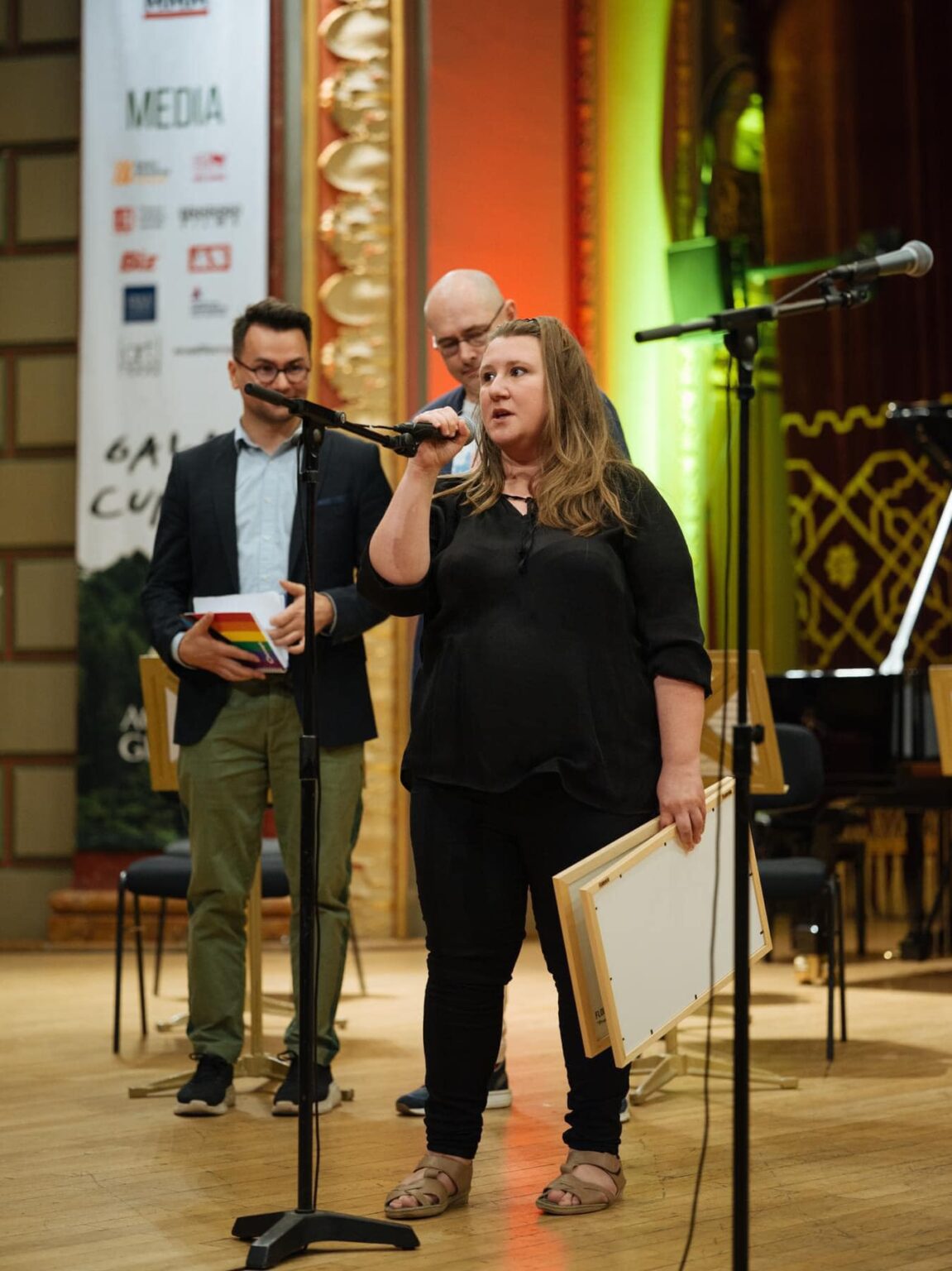
The Romanian LGBTI organisation, ACCEPT plays an important role in co-hosting the ILGA-Europe conference this year. Co-president Teo Ion-Rotaru shares her insights into what the Conference represents for the organisation and the LGBTI community in Romania, in light of the current political climate.
Hi Teo. Can you tell us what hosting the ILGA-Europe Annual Conference means for ACCEPT?
ACCEPT has been part of the European LGBTI movement for almost 30 years. Even though some faces have changed — staff, board members, and activists — our focus remains the same: growing and consolidating the movement. Hosting this conference offers a unique opportunity to contribute to the broader European movement, especially at a time when it is so needed.
It is a chance to bring together young and seasoned activists alike, offering a space where we can collectively reflect on our successes and challenges. My own first ILGA-Europe conference reinforced my belief in the power of community. Seeing others who had been through similar struggles, sharing strategies and support, was a powerful reminder that we are not alone.
What does this event mean in a wider political context for the LGBTI movement in Romania?
The political environment in Romania is tense, with Presidential and Parliamentary elections around the corner. The rights of LGBTI people are increasingly important for Europe, and Romanian politicians are aware that the eyes of Europe are on them.
We hope that this event will serve as a platform to amplify the voices of Romania’s LGBTI community, not just within our own country but across Europe. Hosting this conference sends a clear message: you cannot demand support from Europe while turning a blind eye to the rights denied to your own citizens.
Our fight is intersectional—it’s not just about LGBTI rights, but about democracy, the rule of law, and the well-being of all minorities in Romania. This conference will shine a spotlight on these struggles and push us towards greater equality.
Meet our Annual Conference hosts: MozaiQ – The courage to grow the movement in Romania
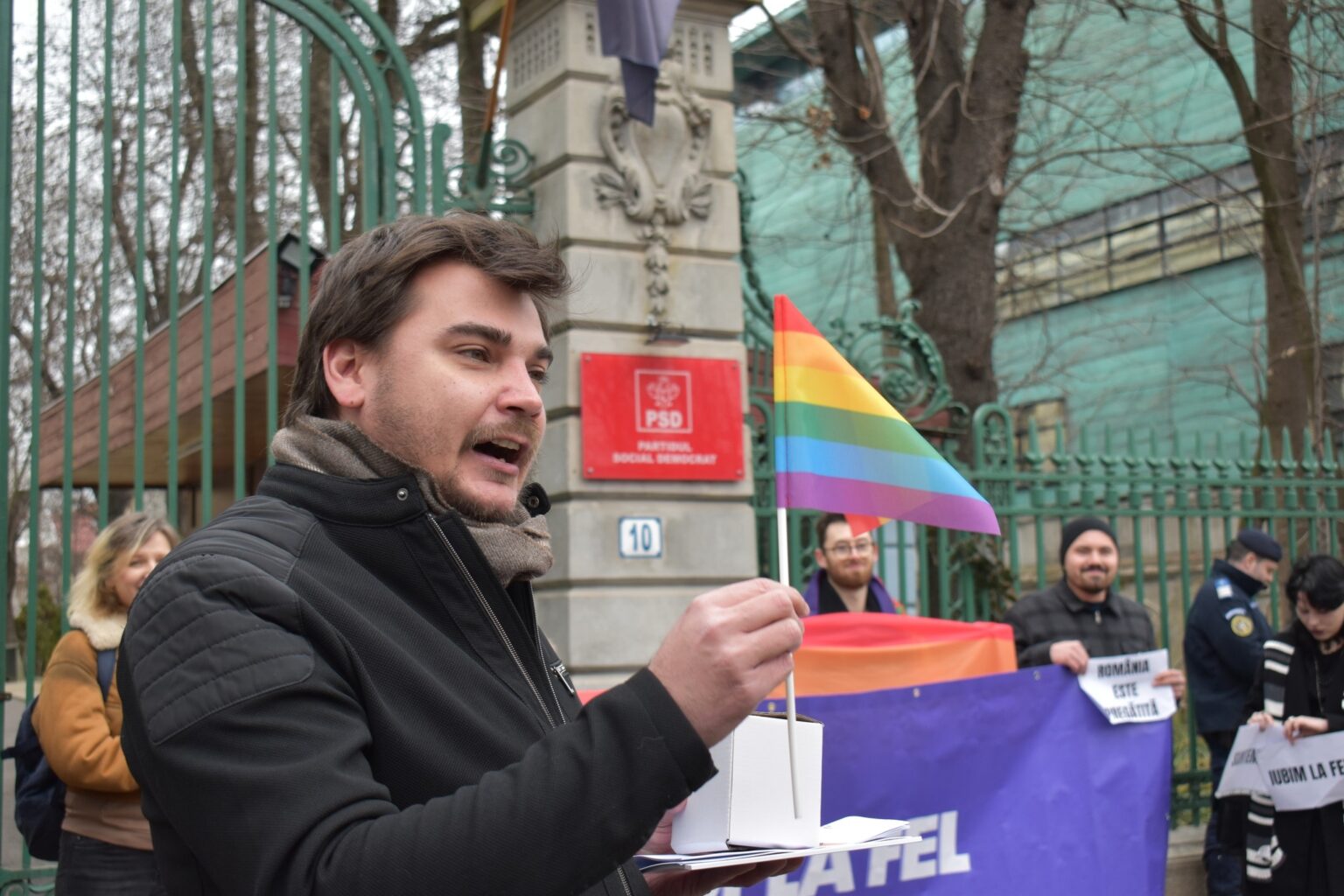
As the ILGA-Europe annual conference approaches, we turn our focus to one of the local co-hosts, MozaiQ, an organisation that has played a crucial role in shaping the LGBTI movement in Romania. Vlad Viski from MozaiQ shares what hosting the Conference means in the context of LGBTI rights in Romania.
Hi Vlad, tell us, what does hosting this conference mean for MozaiQ?
For us, hosting the ILGA-Europe Annual Conference is a testament to the growth of Romania’s LGBTI movement over the last decade. When we started in 2015, there were only one or two LGBTI organisations in the country. Today, there are more than 20 groups, not just in Bucharest but across six other cities. This transformation has been at the heart of MozaiQ‘s mission—building a movement from the ground up, creating spaces for underrepresented groups such as Roma LGBTI youth, transgender people, and the elderly.
The Conference is a reward for our efforts, and it shows that Romania is ready to connect with activists from across Europe. This Conference isn’t just about us; it’s about recognising that our work is worthy and that our movement is mature.
What does this mean in a wider political context for the LGBTI movement in Romania?
Romania’s political landscape has been anything but easy for LGBTI people. In ILGA-Europe’s Rainbow Map, Romania ranks 26th out of 27 EU countries on LGBTI rights, only ahead of Poland. Same-sex couples are not legally recognised, and gender recognition for trans people is an ongoing battle. Recent legal victories, such as defeating the 2018 referendum aimed at banning gay marriage and the 2020 bill that sought to outlaw gender identity education, and the 2024 landmark ruling from the EU Court of Justice affirming the mutual recognition of legal gender identities across Member States, show the importance of continued resistance.
We’ve managed to prevent Romania from following the path of Hungary or Poland, where democracy is being eroded. Our success in stopping these anti-LGBTI measures shows that civil society is strong, but the fight is far from over.
What is in the near future for the LGBTI movement in Romania?
With the upcoming Presidential and Parliamentary elections happening before the end of the year, the ILGA-Europe conference will play a role in keeping Romania’s LGBTI rights on the political agenda. Romania is being watched, and our movement is gaining power not just here, but across Europe. Romania has to stay on its European path. It has to provide a strong policy on legal gender recognition based on self-determination and create an environment in which LGBTI people are protected. It is essential that Romania continues to recognise the rights of LGBTI people as part of its commitment to the European path.
Joint statement: EU Court of Justice strengthens trans rights by calling for the automatic recognition in birth certificates
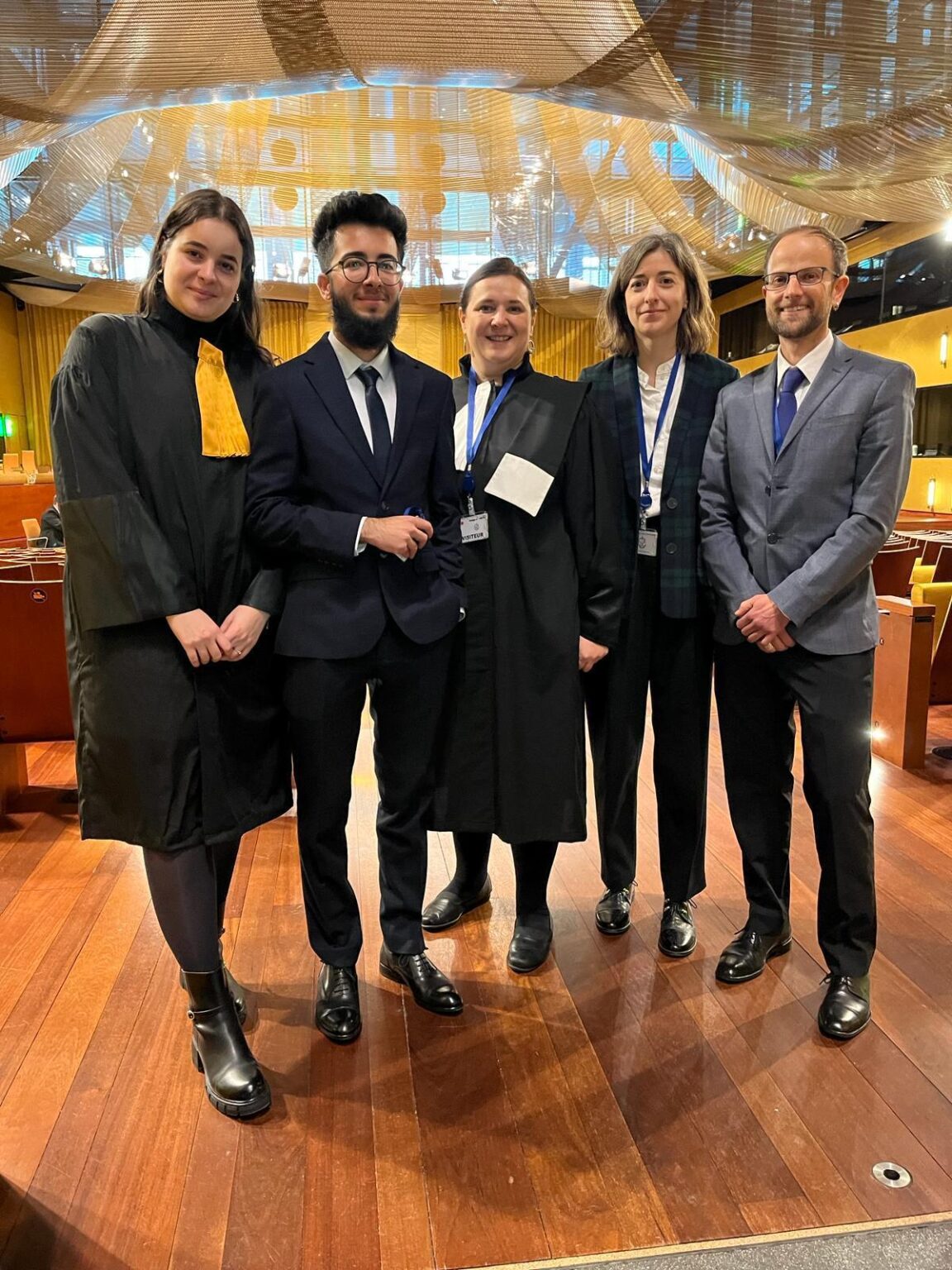
ACCEPT, TGEU and ILGA-Europe welcome today’s decision of the Court of Justice of the EU (CJEU) said that the refusal of an EU Member State to recognise changes of forename and gender acquired in another Member State is contrary to the rights of EU citizens.
The case C-4/23 Mirin concerns Arian Mirzarafie-Ahi, a Romanian trans man, with dual Romanian-British citizenship. Arian began the legal process to change his legal gender and name in 2017 and was granted a gender recognition certificate by UK authorities in 2020. At that time, the UK was in the Brexit transition period and still treated as a Member State of the EU. Subsequently, Romania refused to register the name and legal gender recognition of the applicant obtained in the UK and demanded that he go through Romania’s judicial legal gender recognition procedure. However, the European Court of Human Rights had already found that Romania does not have a procedure for change of name and gender marker that satisfies the standards of the European Convention of Human Rights (ECHR) of being quick, transparent and accessible.
The Romanian court asked the EU’s top court to clarify whether EU law required Romania to recognise another Member State’s decision acknowledging the name and gender marker of the applicant or if it could enforce its own procedures for legal gender recognition. In other areas of law, EU Member States commonly recognise each other’s decisions without further procedures. As such, this case marks a pivotal moment in addressing the mutual recognition of legal gender recognition decisions across EU Member States.
The CJEU Decision
The CJEU ruled in favour of Arian, stating that Romania must recognise the legal gender recognition granted in the UK. The Court emphasised that the refusal to acknowledge changes of forename and gender acquired in another Member State is contrary to the fundamental rights of EU citizens, particularly the principles of free movement and non-discrimination. The Court highlighted that mutual recognition of legal decisions among Member States is essential for upholding the rights of individuals within the EU, and that personal identity, including gender, is a fundamental element of one’s identity, protected under Article 7 of the Charter of Fundamental Rights and Article 8 of the European Convention on Human Rights. This landmark ruling reinforces the obligation of Member States to respect and recognise the legal gender identity of individuals as granted by other EU countries.
Impact
The importance of this judgement extends beyond the applicant’s individual circumstance, and underscores the broader issue faced by trans people whose legal gender recognition in one Member State is not acknowledged elsewhere in the EU, preventing them to travel freely, live, work or study across the EU, or even to vote, as any other citizen is able to. The judgement confirms the principle that rights legally obtained in one Member State must remain valid throughout the EU.
Reactions
According to Arian’s legal counsel, human rights lawyer Iustina Ionescu: “Today’s verdict has shown us that trans people are equal citizens of the European Union. When you have rebuilt a life in another part of the European Union because you are not welcome in your own country, it is normal to ask to be treated with dignity when interacting with the authorities in your home country. The fact that today the Court ruled on the mutual recognition of LGR decisions, no matter how different the procedures are in the Member States, should determine Romanian authorities to also adopt a fast, transparent and accessible national procedure, as requested by existing ECHR jurisprudence.”
TGEU Expert Advisor, Richard Köhler, said: “The CJEU’s ruling in the Mirin case is a monumental victory for trans people in Europe! Arian was forced to navigate a legal nightmare, facing the prospect of conflicting passports and demands for sterilisation to match his legal gender on Romanian and UK documents. Member States must recognise each other’s decisions—this is about equality and dignity. Romania, it’s time to act: Arian deserves his passport now, and the country needs a legal framework for recognising foreign gender identities.”
ILGA-Europe’s Senior Strategic Litigation, Marie-Hélène Ludwig added: “Today’s ruling confirms that without mutual recognition of legal gender recognition from one Member State to another, the right to freedom of movement and residence is not guaranteed for trans people in the EU. It is a great victory that shows the power of strategic litigation in the EU. This judgement will have an immensely positive impact, increasing legal protection for all trans people in the EU, all the more as certain EU countries like Romania still do not provide a legal framework for legal gender recognition conforming with European Court of Human Rights’ standards.”
Romanian NGO ACCEPT is a plaintiff in the case alongside Arian. TGEU and ILGA-Europe supported ACCEPT throughout the case, and joined Arian’s legal team at the Oral Hearing before the CJEU in January 2024.
Annual Conference logo launch: The Power of Curaj
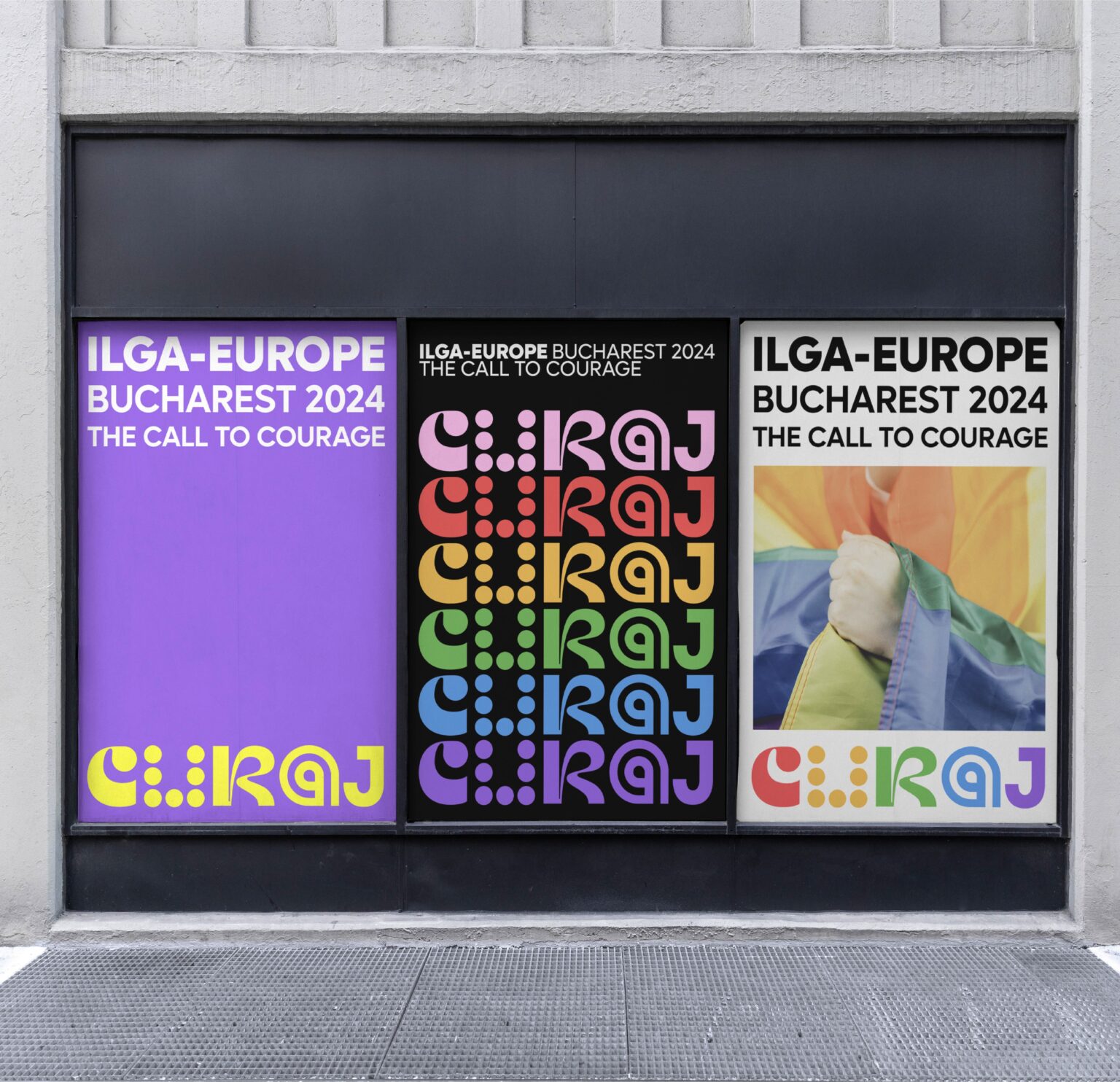
Learn about the courage captured in our branding for this year’s ILGA-Europe conference
As we launch our new logo for the ILGA-Europe conference in Bucharest, we present to you a word used in everyday Romanian life: ‘curaj’. This term, which means ‘courage’, encapsulates our theme this year, ‘The Call to Courage’ and serves as a powerful reminder of the great bravery shown by our activist movement, often in the most challenging circumstances, and the collective courage we need to inspire in each other as we go forward.
Meet the designer
This year’s designer, Vadim Carazan, has been working in design for 12 years in Romania. After years of freelancing, he established his own studio with a team of employees, called wegrow. While he now delegates most of the projects, this was one he chose to undertake himself. When designing, he wanted to challenge himself, since using a word as a logo is considered quite “out of the box” in the designer world.
About the logo
Here is what Vadim had to say about the process of designing the logo:
“Language plays a crucial role in shaping our perceptions and emotions, and the Romanian language offers a unique perspective on courage. The word “curaj” (pronounced koo-rahzh) stands alone as a compelling call to action. In everyday Romanian life, it is commonly expressed in various situations, such as encouraging someone before they leap to the unknown or offering support to someone facing a difficult decision. This cultural resonance transforms “curaj” into more than just a word; it becomes a heartfelt nudge toward bravery and self-empowerment.”
“The design of our logo reflects the essence of ‘curaj’ in its simplicity and strength. Each letter varies in shape and style, symbolising the rich diversity within the LGBTI community – you can be a ‘C’, or a ‘U’, or any other shape and letter! The design celebrates quirkiness, individuality, and the spectrum of experiences that make our community unique. This playful yet meaningful approach represents the importance of embracing one’s identity and self-expression.”
“While ‘curaj’ is deeply rooted in Romanian culture, its message of courage resonates universally within the LGBTI movement. It embodies our shared experiences – standing up for our rights, embracing authenticity, and nurturing a culture of inclusivity. By centring this word in our branding, we not only honour the local context but also highlight our commitment to making connections and empowering activists. This choice serves as a reminder that we are all part of a broader movement, united in our quest for equality and justice.”
Curaj in Bucharest
We are big fans of what Vadim has done with the logo. It represents so clearly every element of the theme of our conference, while rooting it in Romania, where we look forward to being with over 400 activists from October 16-19, hosted by local organisations Accept and Mozaiq. It promises to be a pivotal moment for the LGBTI movement in Europe and Central Asia, as we come together in a vibrant, engaged and courageous space to connect, learn from each other, have great fun, and re-energise for the work ahead.
Remarkable and resilient Prides across Europe
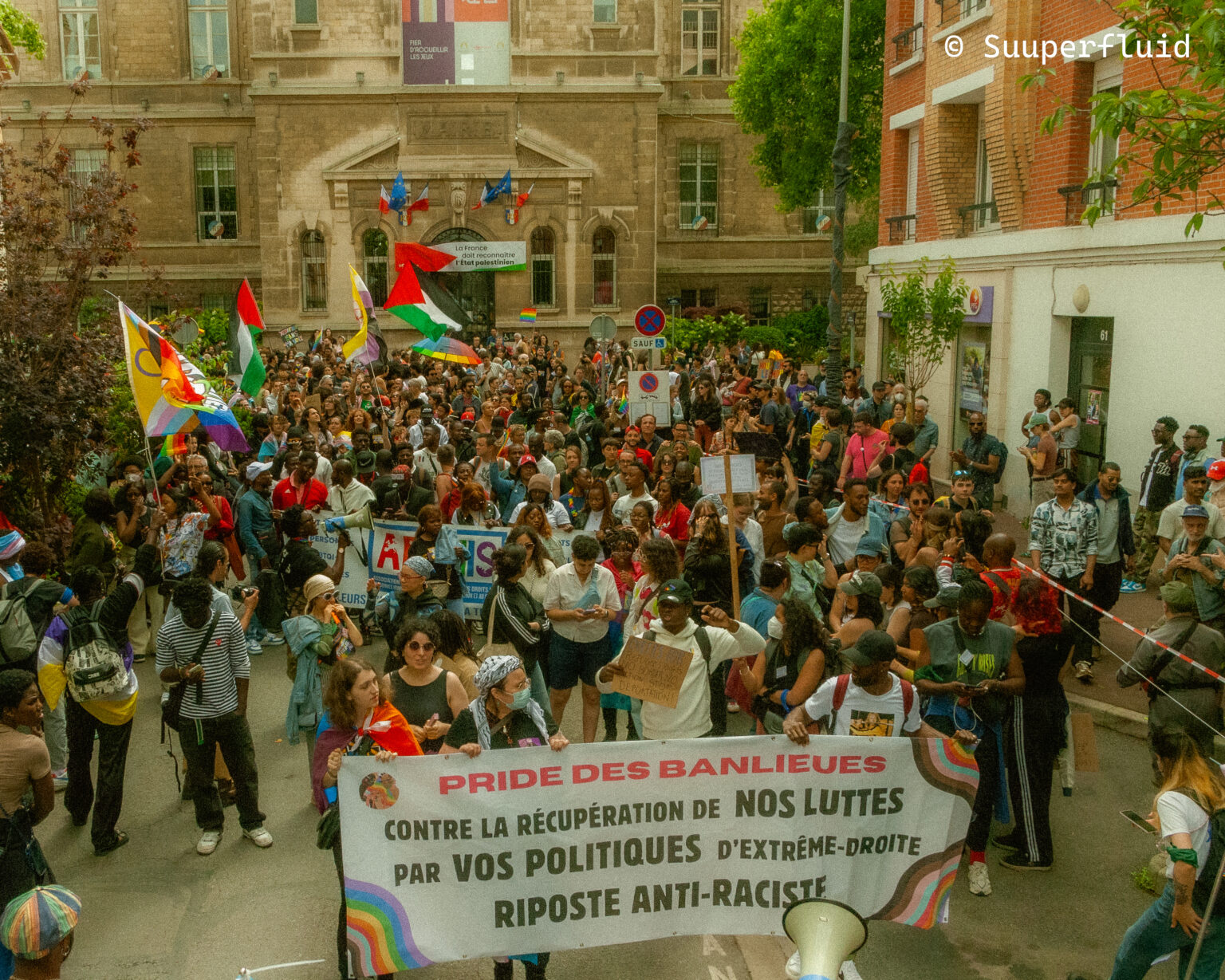
Amid political turmoil, war, social issues and cultural changes, Pride celebrations in Europe continue to demonstrate the resilience and determination of LGBTI communities
Today, on the eve of EuroPride in Thessaloniki, we are highlighting a number of significant Pride events on the continent, and one clear message shines through: LGBTI people are persisting in asserting their right to assemble and freely express themselves, thereby firmly establishing their presence in society. Pride events not only celebrate identity and diversity but also serve as critical platforms for political engagement. They amplify the voices of LGBTI people across Europe, who continue to push boundaries and demand their rightful place in society. Here are just a few of the thousands that have and will happen across Europe this year, in places where challenges are acute.
Kyiv Pride, Ukraine
Kyiv Pride 2024, on June 16, took place amidst challenging circumstances, reflecting the determination of Ukraine’s LGBTI community. Despite facing a cap on participation and heightened security measures, over 500 people marched through the streets of the capital to advocate for partnership recognition and protections against hate crimes. The event occurred against a backdrop of ongoing war, underscoring the urgent need for legislative reforms to safeguard LGBTI rights in Ukraine. Despite tensions and counter-protests, Kyiv Pride 2024 stood as a powerful assertion of the community’s right to freedom of assembly and expression.
“We took only a few steps, we made this painful compromise for the sake of safety and in order to revive the tradition and make a powerful and open Kyiv Pride March next year.” – Anna Sharygina, lead organiser of KyivPride.
La Pride des Banlieues (The Pride of the Suburbs), La Courneuve, France
La Pride des Banlieues happened in La Courneuve on June 22, representing LGBTI people from French working-class areas, many of whom are racialised. The group has been organising the Pride for several years in Saint-Denis. This year, however, the municipalities denied permission to march in Saint-Denis because of preparations for the Olympic Games in the city. Due to a last-minute relocation from its original venue and losing support from a municipality that had previously been an ally of past La Pride des Banlieues marches, the event took place in another suburb of Paris with less resources for security and less time to figure out new support infrastructure.
It was important that La Pride des Banlieues took place this year as the far-right opposition has been gaining more traction in France, getting more intense in their actions against LGBTI communities, with racialised LGBTI communities particularly facing multiple situations of discrimination and harassment. In their political message at La Pride des Banlieues, the organisers and their constituents condemned rising hate speech, discriminatory immigration policies, and institutional racism, aiming to resist far-right co-optation and mobilise solidarity against oppression of ethnic minorities and LGBTI communities in the suburbs.
“The fight against the far-right cannot be reduced to a universal fight, we must recognise the multiple and interconnected realities of oppression.” – La Pride des Banlieues organisers.
Trans Pride Istanbul, Turkey
Trans Pride Istanbul on Sunday June 23 was marked by decentralised actions across the city. Under the theme “Perpetrator State,” participants asserted trans visibility and existence, refusing to be silenced despite bans and oppression. Rather than a centralised march, activists mounted a number of smaller, unannounced activities like hanging trans flags, projecting messages across city landmarks and reading of a statement in front of Pride attendees. The event unfolded amidst stringent security measures, including metro station closures and a heavy police presence. Two people were detained and released after. This year’s Trans Pride Istanbul not only showcased solidarity and determination among Turkey’s trans community but also highlighted ongoing issues of discrimination and the fight for visibility and rights, echoing their message that the state is accountable for perpetuating violence and systemic injustices against trans people.
“We are trans people who are made the targets of violent and discriminatory policies at any chance given just because of our trans identities.” – Trans Pride Istanbul organisers
Looking Ahead
As we approach the end of June, two more significant events lie ahead this weekend.
Bucharest Pride, Romania
More than 25,000 people are expected to take to the streets of Bucharest on Saturday, June 29 to celebrate diversity and claim the rights of the LGBTI community at a crucial moment in Romania. Both presidential and general elections are approaching, and 20% of Romanian MEPs elected to the European Parliament were from the far right, with two of them using anti-LGBTI hate speech. Additionally, a new referendum regarding the definition of families is being pushed by the government opposition.
Pride in Bucharest will address the urgent need for legal recognition and protection of all same-sex families, continuing the push for the immediate implementation of the 2018 Coman case. In the case, the European Court of Justice affirmed residency rights in EU countries (that do not recognise same-sex unions) for the spouse of an EU citizen exercising their right to freedom of movement. Romania has yet to implement the verdict by granting Andrew Coman’s husband a residence permit, and a draft law has been adopted that would stop Romania from implementing it.
ILGA-Europe will be in Bucharest this coming October for their Annual Conference, working with local hosts ACCEPT and MozaiQ, recognizing this as a crucial moment for LGBTI human rights in Romania.
Istanbul Pride, Turkey
Istanbul Pride will take place on Sunday, June 30. Given the government and police response to Pride in the country over the past years, we will be closely monitoring what is happening. One thing we do know is that the LGBTI community in Istanbul and their allies will assert their human right to freedom of assembly and freedom of expression by attending Pride, with pride, resilience and courage. We will be reporting on Istanbul in this year’s instalment of our Turkey Pride monitoring blog over the coming weeks, as we learn from activists and organisers how officials are responding to Prides across the country. You can read our Turkey Pride monitoring blog from 2023 here.
EU Court of Justice Advocate General calls for automatic recognition of legal gender recognition in birth certificates
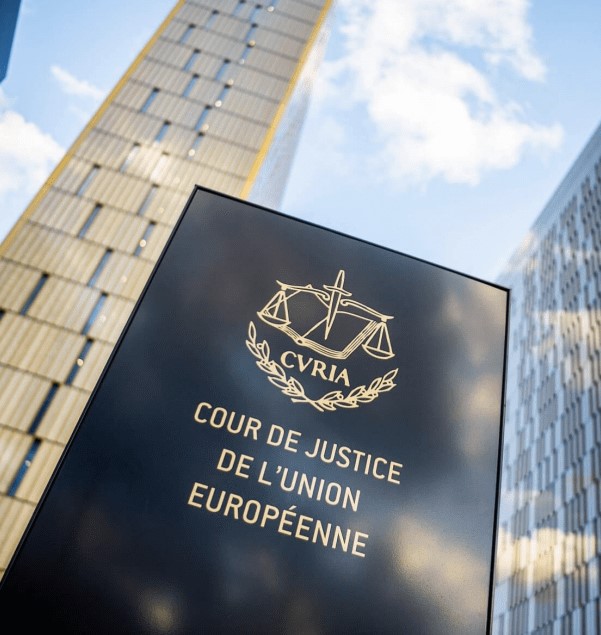
An opinion from the Advocate General of the Court of Justice of the European Union states that documents received in the UK by Romanian trans man must be recognised in his home country.
In a significant development regarding the rights of trans people in the European Union, the Advocate General of the Court of Justice of the European Union (CJEU) has issued an opinion calling for the automatic recognition in birth certificates of new name and gender marker acquired in a Member State.
The opinion specifically pertains to the case of Arian Mirzarafie-Ahi, a trans Romanian man facing his home country’s authorities’ refusal to recognise in his birth certificate his new gender marker, acquired further to his legal gender recognition in the United Kingdom.
Advocate General Jean Richard de La Tour said it was imperative that the Romanian state record in his birth certificate entries related to his name and gender without additional procedures. This recognition, argued the Advocate General, is essential in upholding the rights to free movement and private and family life guaranteed by the European Union.
Arian’s case, supported by the ACCEPT Association, ILGA-Europe and TGEU, marks a pivotal moment in addressing the mutual equivalence of legal gender recognition (LGR) procedures across EU Member States.
The refusal of authorities in Romania to recognise Arian’s UK-issued identity documents has left him in a precarious situation, living with two different identities. Despite being a citizen of the European Union, Arian’s ability to exercise his freedom of movement and his right to private and family life is hindered by the lack of recognition of his true identity in his home country. This discrepancy exposes him to discrimination and humiliating treatment, particularly at border crossings.
Expressing anticipation for a favourable judgment from the CJEU, Arian emphasised the significance of having his identity accurately represented in official documents. “The favourable judgment of the CJEU is extremely important for me and many other Romanian and EU citizens,” he said. “It is about respecting a fundamental civil right. I am Romanian, I am in the European Union, I am trans. My documents must represent me and be updated.”
The importance of this case extends beyond Arian’s individual circumstances. It underscores the broader issue faced by thousands of individuals whose rights are compromised due to disparities in identity recognition among EU Member States. The opinion of the Advocate General reinforces the principle that rights legally obtained in one Member State must remain valid throughout the EU.
In response to the Advocate General’s opinion, Katrin Hugendubel, Advocacy Director at ILGA-Europe, added: “The AG opinion confirms what we have been pointing out for EU institutions for quite some time: without mutual recognition of legal gender recognition from one member state to another, the right to freedom of movement is not guaranteed for trans people in the EU. We are looking forward to the judgement confirming this opinion and urge the European Commission yet again to put forward legislation that will guarantee the freedom of movement for all LGBTI people under its next term. The EU directive on parenthood recognition is a very important piece of the puzzle to ensure the freedom to reside and move across the EU for LGBTI people, but more is needed to ensure that trans people can move freely across the EU and enjoy citizenship rights on equal footing with every other citizen of the EU.”
As the CJEU deliberates on this case, there is a collective hope that the judgment will align with the opinion of the Advocate General and ensure the automatic recognition of Arian’s legal gender recognition in the corresponding entries of his birth certificate by the Romanian state. However, we hope that the Court will not take into account in its judgment the questions of “marriage and parentage” emphasised by the Advocate General in his Opinion, which are not at stake in Arian’s case.
Our submission to the EC 2024 Rule of Law report
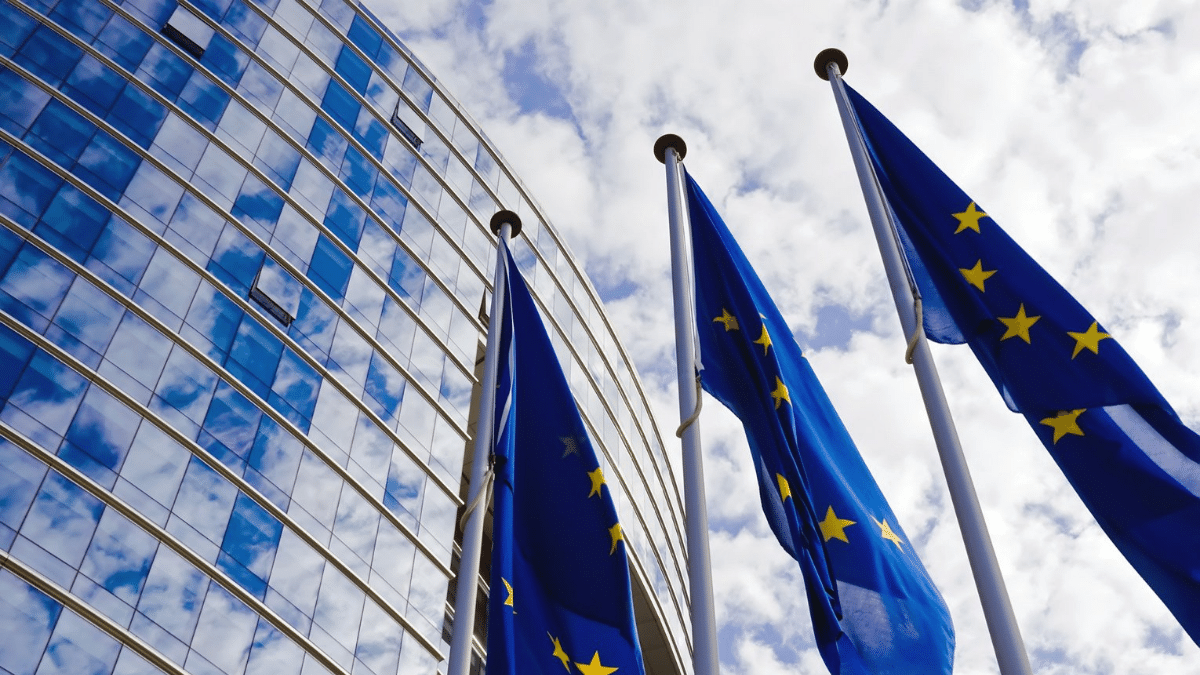
Over the past few years it has become increasingly clear that many government-led violations of LGBTI rights in EU Member States go hand-in-hand with an undermining of the rule of law and democracy. This includes in particular the degradation of the independence of judicial systems and the media landscape.
Particularly stark among this year’s submissions is the continual problem of non-implementation of European court judgments, especially around the right of LGBTI people to respect for their private and family life and the best interests of their children, as well as judgments related to legal gender recognition.
Efforts by authorities to restrict civic space; legal harassment, threats, hate speech and smear campaigns against LGBTI human rights defenders; and inadequate implementation of hate crime and anti-discrimination laws also remained prominent in 2023.
Romania failed to protect same-sex couples, European court rules
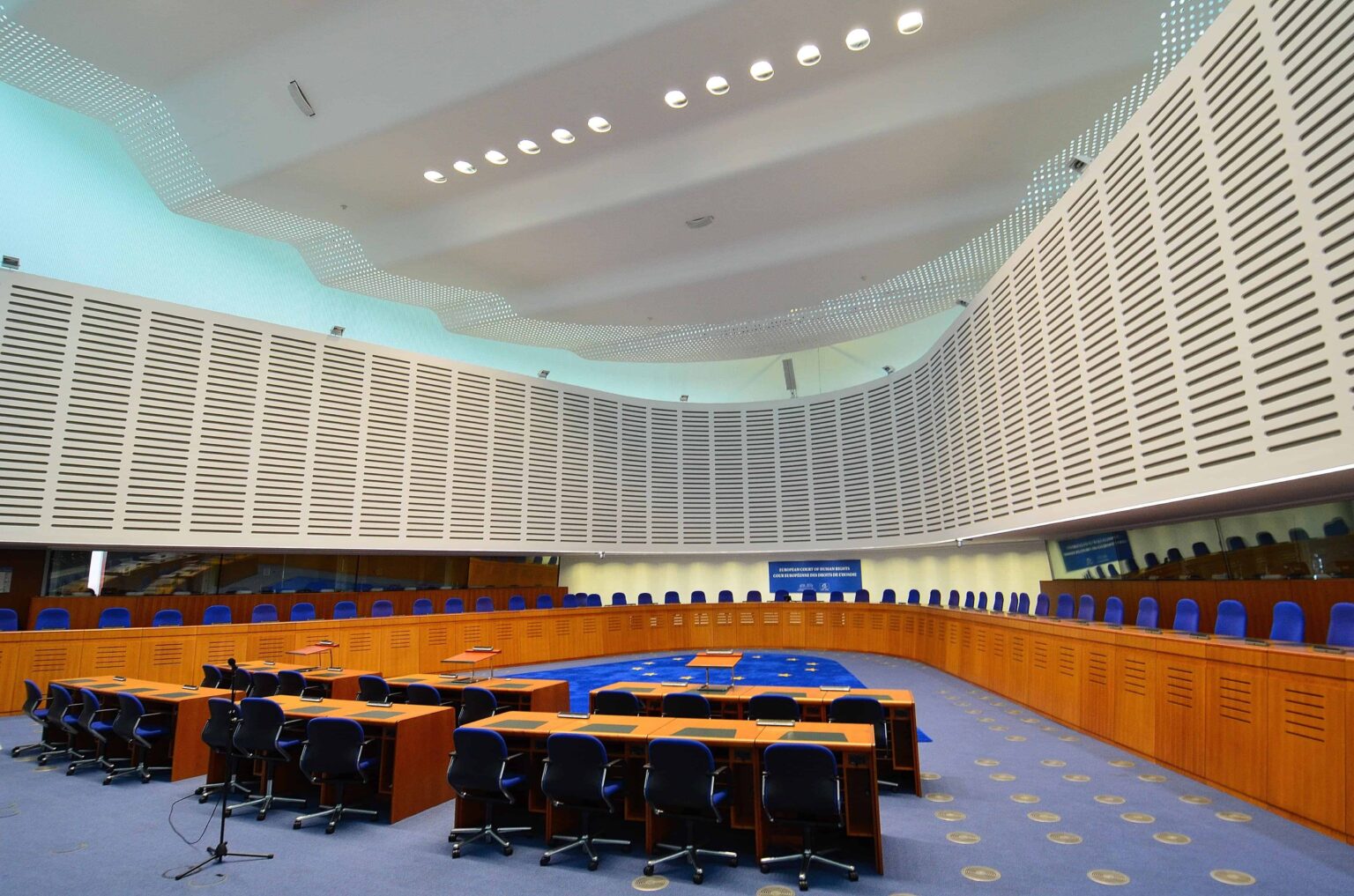
European court has found that Romania breached the right to respect for the family life of 21 same-sex Romanian couples by failing to recognise their relationships.
In a ruling released today, the European Court of Human Rights (ECHR) found that Romania violated Article 8 (right to respect for private and family right) of the European Convention on Human Rights.
21 same-sex couples lodged over two dozen complaints to the ECHR between 2019 and 2020 arguing that, because Romania does not recognise any type of same-sex union, it was impossible for them to legally safeguard their relationships. The couples, born between 1967 and 1996, were all of Romanian nationality and currently live in various parts of the country.
The couples turned to the European court since local authorities had refused their demands. After living together for different lengths of time, the couples gave notice to the local registry offices of their intention to marry. All requests were rejected because according to the Romanian Civil code “marriage is concluded between a man and a woman” and same-sex marriage is prohibited.
In its ruling, the ECHR reiterated that Council of Europe member states are required to provide a legal framework that protects and recognises same-sex relationships. It also referred to a previous judgment Fedotova and Others v. Russia and remarked that states have some discretion on the form of recognition.
The court concluded its decision by noting that “none of the arguments put forward by the [Romanian] Government to justify the restriction on legal unions to heterosexual marriage could outweigh the applicants’ interest in having their relationships recognised.”
The 21 couples had declared that they were unable to access numerous rights available for married couples such as protections in property or inheritance, and other obstacles all same-sex couples in Romania face. ILGA-Europe provided third-party submissions jointly with FIDH, NELFA and ECSOL.
This May, Romania, ranked 41st on ILGA-Europe’s annual Rainbow Map and Index. Close to its fifth anniversary, Romania has not yet implemented the landmark judgment issued by the CJEU recognising the freedom of movement of same-sex spouses in the EU.
Romanian transgender man’s landmark case requesting that Romania acknowledges his UK gender recognition referred to the Court of Justice of the European Union

Arian Mirzarafie-Ahi, a transgender man with Romanian and British citizenship, has filed a first-of-its-kind lawsuit in Romania against Romanian authorities over their refusal to recognize his new male name and gender identity acquired in the United Kingdom (while still treated as an EU Member State). The lawsuit, which raised fundamental questions under EU law, has now been referred to the Court of Justice of the European Union (CJEU) in Luxembourg.
ACCEPT Romania, a leading Romanian NGO for LGBTQ+ rights, is helping Arian bring this landmark legal claim before the CJEU to have his new gender identity acknowledged in Romania, in accordance with his free movement and citizenship rights.
Arian began the legal process to change his gender identity markers and name in 2016. He was ultimately granted a gender recognition certificate by the UK authorities in 2020, during the Brexit transition period (when the UK was still treated as an EU Member State).
Romania now refuses to acknowledge the name and gender recognition that Arian received in the UK. Instead, it is demanding that Arian undergo Romania’s own gender recognition procedure, which has already been found to violate the European Convention on Human Rights. As a result, Arian now finds himself with two different identities across two countries, which has impacted his well being, his freedom of movement, and his EU citizenship rights.
This situation is humiliating and deeply affects Arian’s right to dignity under the Universal Declaration of Human Rights and the European Convention on Human Rights. Arian’s ability to travel freely in the EU, like any EU citizen, has been unjustifiably restricted, including his ability to visit family members in Romania, because his Romanian passport displays the wrong identity.
Arian’s case is the first of its kind to reach the European Courts. He hopes the CJEU will side with him and rule that the Romanian authorities should acknowledge his UK gender recognition and issue him new identity documents with the correct name and gender, without subjecting him to the full Romanian gender recognition procedure.
This case could set a precedent for other transgender people whose gender recognition in one Member State is not being acknowledged elsewhere in the EU, harming their ability to travel freely, reside, work or study across the EU, or even to vote.
The Court will also have the opportunity to confirm that the rights that EU citizens lawfully acquired in the UK when it was still treated as a Member State, such as Arian’s gender change, are portable when those citizens wish to exercise their free movement rights.
Arian and ACCEPT are represented by human rights lawyer Iustina Ionescu and assisted by leading international law firm White & Case on a pro-bono basis.
The facts of this case are as follows.
Background to the case
Arian was born in Romania and migrated to the UK in 2008, and later gained dual citizenship. He started the medical and legal transition in the UK in 2016 at the age of 24, and obtained a UK gender recognition certificate in June 2020, when the UK was still treated as an EU member state.
Arian attempted to register his name and gender change with the Romanian authorities in 2021, but his request was denied. Instead, the Romanian authorities demanded that Arian undergo the full Romanian gender recognition procedure before the national courts. That procedure has already been found to be in violation of human rights by the European Court of Human Rights (X and Y v Romania).
Arian then filed lawsuits in the Romanian national court against the Directorate for the Persons’ Records in Cluj, Romania; against the Civil Status Service, the Directorate for the Persons’ Records and the Administration of Databases and against Cluj Municipality represented by Emil Boc, over their refusal to change his identity documents through a simple administrative procedure.
Through this legal action, Arian is requesting that the national courts oblige the Romanian authorities to change his gender and first name, as well as to issue a new birth certificate.
Before Brexit, Arian could have travelled based on his British passport that reflects his gender identity. However, since Brexit, he can exercise his EU citizen rights only through his Romanian identity documents, which do not reflect his gender identity.
Alongside this breach of Arian’s fundamental rights, especially his right to free movement and residence in the EU, this disparity between his Romanian and British documents exposes him to humiliation and discrimination.
Arian has to travel to the EU with a Romanian passport that reflects neither his gender identity nor his appearance, or must travel on his UK passport as a non-EU citizen.
Considering that Arian’s case raises new issues of principle requiring the interpretation of EU law, in particular in relation to free movement rights and EU citizenship, the Romanian court has decided to refer the case to the European Court of Justice for a preliminary ruling. After hearing the parties, both in writing and orally, the Court of Justice will render a judgement that will be binding on the Romanian courts and throughout the EU.
Quotes
Arian said: “My entry into Romania’s territory, the country where I was born and where I have family members that I want to visit, depends on a set of identity documents that do not reflect who I am.
Due to the Romanian State’s refusal to recognise my gender identity and issue updated documents, I have already been a victim of discrimination at Romanian airports.
“All that I want is to be respected as a Romanian and European citizen and to have my Romanian identity documents updated, just as my UK documents were when I transitioned. I want to be able to enjoy all my rights, but especially my right to dignity.”
His lawyer, Iustina Ionescu, said: “The Romanian state once again violates European law and disregards the efforts made by a Romanian citizen to obtain the recognition of his gender identity in another EU Member State.
“For over a year and a half, the Romanian civil status authorities have sent Arian on a fool’s errand – they have forced him to once again go through a procedure that is entirely random in Romania, and that has already been declared by the ECtHR as violating human rights, and that does not guarantee him a solution of the situation.
“Before being European citizens, we are Romanian citizens, and the state should do its duty towards all its citizens. Fortunately, we can turn to European justice to ensure that we receive equal treatment without discrimination. The European Court of Justice has ruled many times that EU member states should refrain from taking decisions that restrict free movement and the rights of EU citizenship, as Romania did in this case.”
Florina Presadă, executive director of ACCEPT, commented: „ACCEPT Association has been working for years to put an end to the discrimination and abuse that the Romanian state subjects transgender persons in Romania by not providing a legal gender recognition procedure and all services required so that transgender persons can exercise their right to self-determination.
We have been providing legal counselling, psychological support and guidance in transition for years for transgender Romanian citizens, and we have also supported strategic litigation cases in order to show, beyond any doubt, that the rights of transgender persons in Romania are being violated. Our goal is to put an end to the current laws, policies and practices leading to the discrimination of transgender persons.
We stand by Arian, as we stand by every transgender person in Romania and in any other EU member state that does not recognize these persons’ rights to self-determination and dignity. We hope this ruling will show that European rights are for everyone, regardless of gender identity or expression.”
Patrick Brăila, trans activist, declares: “Among the Romanians who left for other European countries for a better life, there are also transgender Romanians who work and live in these states, where they managed to obtain citizenship and which became their adoptive countries. One of them is Arian, a Romanian and British citizen, whom the Romanian state humiliated and wronged when it did not recognize his identity and put him in abusive and intrusive situations. We trust that the CJEU will give him justice, thus restoring the dignity of both him and other trans people who know that their rights as European citizens can no longer be violated.”
“To paraphrase Ursula von der Leyen, if you are trans in one member State, you are trans in all member States. This needs to be settled once and for all,” comments Lenny Emson, TGEU Executive Director. “Having to go through the ordeal of having your gender identity vetted several times is unfair and puts trans people at a clear disadvantage when compared to others living in the EU. Romania, in particular, has no quick, transparent, and accessible legal gender recognition procedures, as confirmed by the European Court of Human Rights. We are proud of Arian for claiming his right to enjoy his EU right to freedom of movement.”
Katrin Hugendubel, Advocacy Director at ILGA-Europe added: “This case is just one example of what trans people in the EU have to go through when their gender recognition from a Member State is not recognised in another, forcing them to undergo the full legal recognition procedure again. This is particularly difficult and troubling in those countries that lack an LGR procedure in conformity with international human rights law standards. This judgment from the CJEU will establish a clear obligation to recognise gender recognition from one Member State in another. It will rightfully enable trans people to move freely across the EU, and to enjoy EU citizenship rights on equal footing with everyone else.”
For further information and interviews, please contact Diana Dragomir, Head of communication & PR ACCEPT Romania at diana@acceptromania.ro or Florina Presadă, Executive Director of ACCEPT Romania at florina@acceptromania.ro.
Our submission to the EC 2023 Rule of Law report
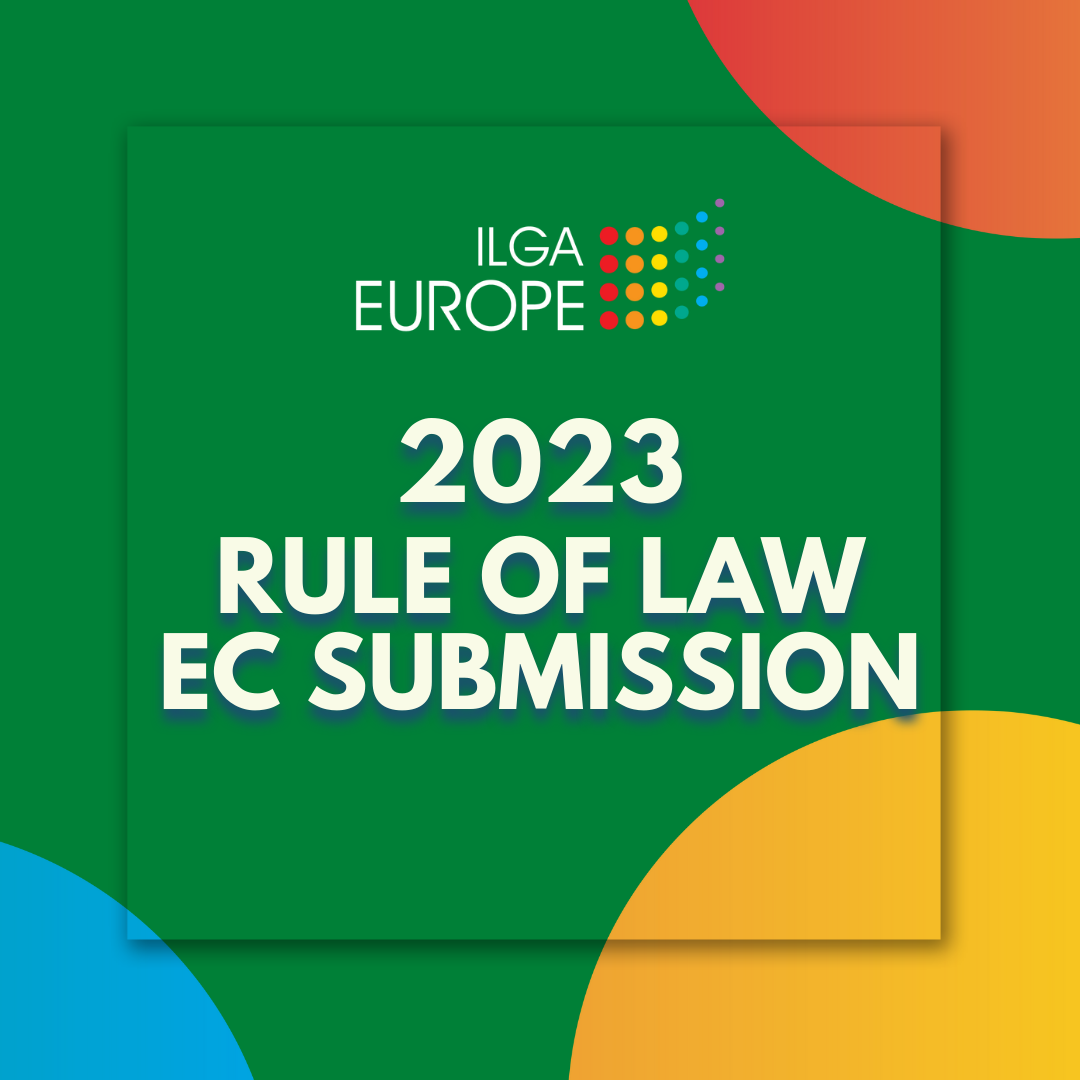
The submission covers developments in eight EU Member States as regards rule of law developments in the countries which have had an impact on the fundamental rights of LGBTI people and their democratic participation, with a focus on the past year (2022).
We have kept our inputs relevant to the content asked for by the consultation, and therefore we have not included all fundamental rights violations against LGBTI people, or all restrictions experienced by LGBTI civil society in the respective countries. We have only included them where there is a clear link to the issues of rule of law contained in the consultation.
Notably the submission covers the following topics:
- Manipulation of judicial processes to attempt to erode the human rights of LGBTI people and their access to justice;
- Politicians attempting to discredit and delegitimise the rulings of courts that uphold the rights of LGBTI people;
- Harassment and intimidation of LGBTI human rights defenders by law enforcement/prosecution services;
- Smear campaigns and negative narratives against LGBTI people, particularly where independence of media is threatened;
- SLAPPs against activists or journalists reporting on topics of public interest related to LGBTI;
- Censorship of LGBTI content;
- Tabling and adoption of laws aiming to reduce fundamental rights of LGBTI people;
- Tabling of laws aimed at restricting the functioning of civil society organistions;
- Arbitrary application of Covid-19 regulations to attempt to restrict the freedom of assembly of LGBTI people;
- Continued non-implementation of CJEU or ECtHR judgements which would improve the lives of LGBTI people;
- Anti-LGBTI discriminatory speech from political and religious leaders affecting public perception of LGBTI CSOs and creating an unsafe climate for LGBTI human rights defenders;
- Insufficient implementation of legal protection (e.g. protection against hate crime) for LGBTI people by responsible services, sometimes including Ombudspersons.
A.B. and K.V. v Romania
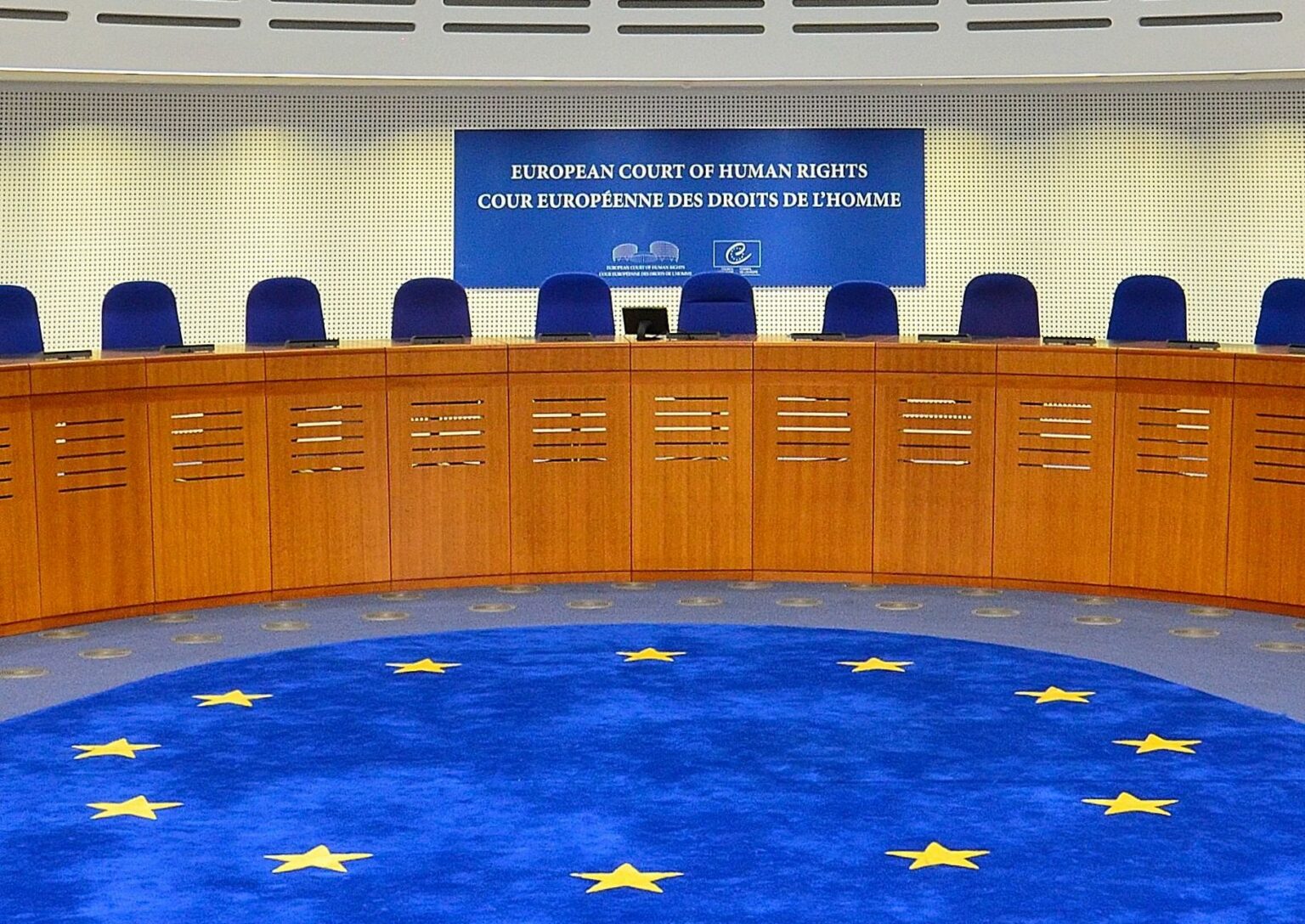
Recognition of same-sex marriages in the context of freedom of movement in the EU through the prism of implementation of CJEU’s Coman judgment
Submitted jointly by ILGA-Europe and AIRE Centre
Our submission to the EC 2022 Rule of Law Report
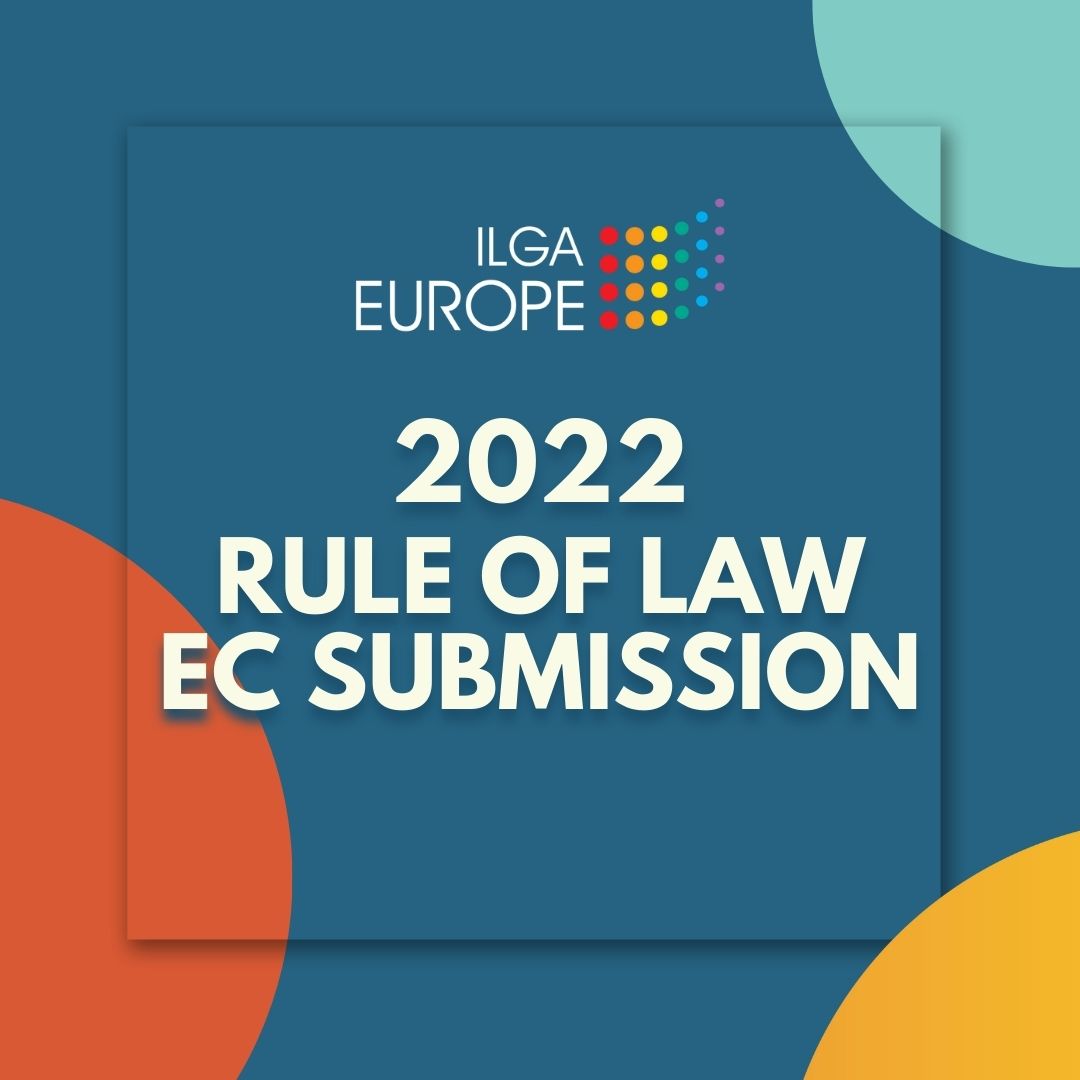
Expert contributions were provided by organisations PROUD (Czech Republic), LGBT komiteen (Denmark), Inter-LGBT (France), Háttér Társaság (Hungary), KPH & Atlas of Hate (Poland), ACCEPT (Romania), and Legebrita (Slovenia).
The developments encompassed in the submission point to systematic attacks on the fundamental rights of LGBTI people enabled by the weakening of rule of law and democratic structures. We have not included all fundamental rights violations against LGBTI people, or all restrictions experienced by LGBTI civil society in the respective countries, only those which are relevant to the respective headings of the consultation, where there is a clear link to rule of law.
Notably the submission covers the following topics:
- Political interference or bias in court cases related to LGBTI rights, in particular where independence of the judiciary is under attack;
- Anti-LGBTI bias, smear campaigns and censorship of LGBTI content, in particular where media freedom is under attack;
- Funding restrictions or discriminatory distribution of public or EU funds, affecting LGBTI organisations;
- Arbitrary application of Covid-19 regulations to attempt to restrict the freedom of assembly of LGBTI people;
- Covid-19 emergency measures affecting the process of preparing and enacting laws (exclusion of LGBTI CSOs in consultation phases or even fast-track adoption of legislation directly attacking LGBTI people);
- Non-implementation of CJEU or ECtHR judgements which would improve the lives of LGBTI people;
- Judicial harassment of LGBTI activists (in particular SLAPPs);
- Insufficient follow-up of anti-LGBTI hate crime cases;
- Anti-LGBTI discriminatory speech from political and religious leaders affecting public perception of LGBTI CSOs and creating an unsafe climate for LGBTI human rights defenders (in some cases leading to attacks on CSO offices, employees and volunteers).
Coman and Others v Romania

Recognition of same-sex marriages in the context of freedom of movement in the EU through the prism of implementation of CJEU’s Coman judgment.
Submitted jointly by AIRE Centre, ICJ and ILGA-Europe.
We welcome today’s judgment from the European Court of Human Rights in the case of Association ACCEPT and Others v. Romania
We welcome today’s judgment from the European Court of Human Rights in the case of Association ACCEPT and Others v. Romania.
The Court found a violation of Article 8 (right to private and family life) and 11 (freedom of association and assembly) together with Article 14 (prohibition of discrimination).
The case concerned a protest against a screening of a film involving a same-sex family during the applicant association’s LGBT History Month in February 2013. The protesters were carrying far-right paraphernalia and cinemagoers had been verbally abused.
Court found that the authorities had failed to offer adequate protection in respect of the individual applicants’ dignity and private life, and to effectively investigate the real nature of the homophobic abuse directed against them. Importantly the Court pointed out that “in doing so, the authorities showed their own bias towards members of the LGBT community”.
- You can download the judgment here.
Rainbow Family Rights in Europe – Part 1: The Coman Case Three Years On
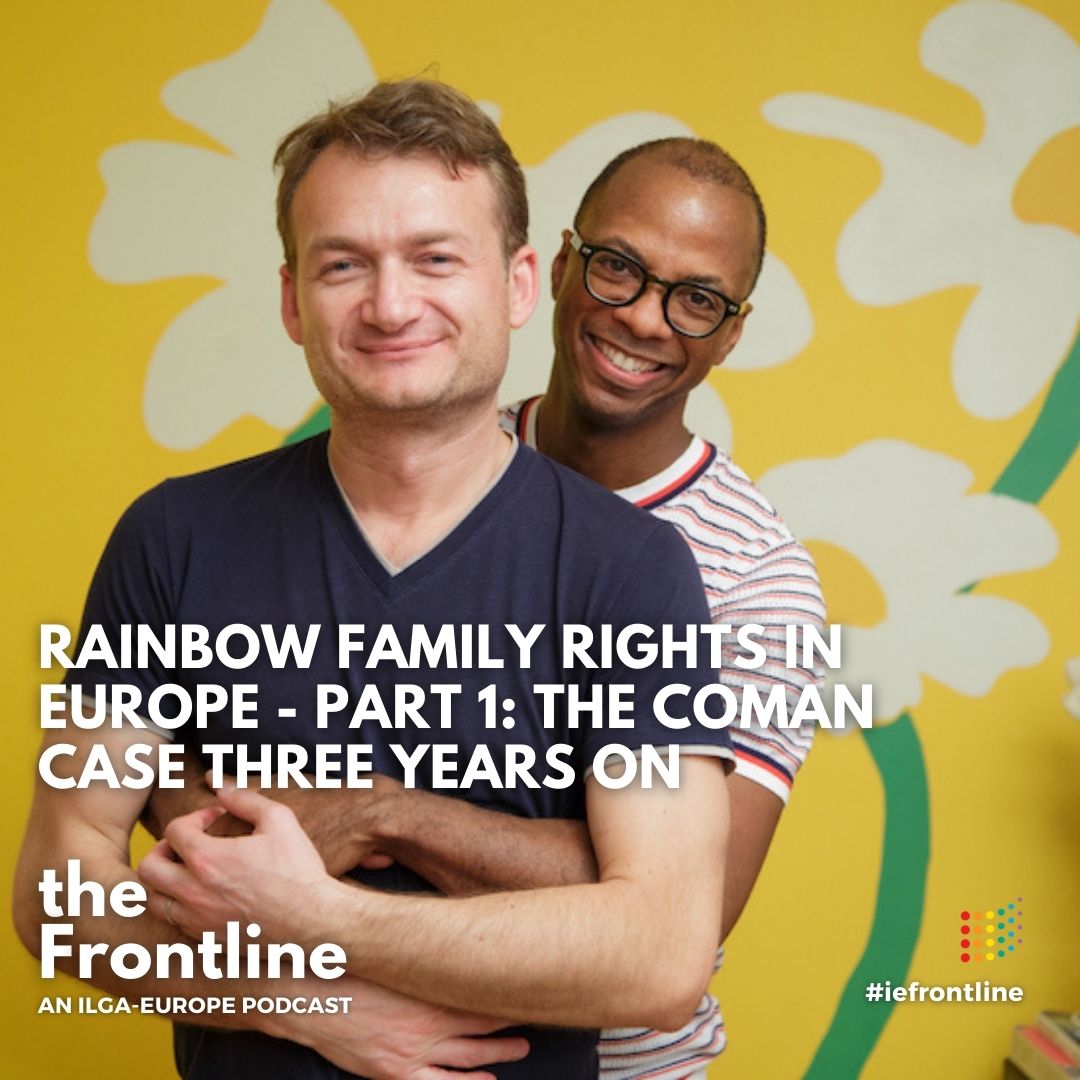
Three years ago, Adrian and his partner Clai were successful bringing their case to the Court of Justice of the European Union, which judged that same-sex spouses are fully recognised as spouses under the EU freedom of movement directive.
As a result, Adrian and Clai, who is American, should have been granted a residence permit in Romania. To this day, the judgement has not been enacted by the Romanian state, and in December 2020, the couple took their case to the European Court of Human Rights to finally get their rights recognised.
We’re also joined by Arpi Avetisyan, head of litigation at ILGA-Europe, to talk about the wider implications of the latest developments in the Coman case.
European Court will consider lack of implementation of EU law to enable freedom of movement for same-sex spouses

Almost three years after the European Court ruled that Romania must recognise a same-sex couple under EU freedom of movement legislation, its government is yet to implement the judgement.
In June 2018, the Court of Justice of the European Union (CJEU) issued a landmark judgement, recognising that same-sex spouses are also spouses under EU freedom of movement laws. Almost three years later, Romania has still not respected the judgement by granting the male spouse of a Romanian man a residence permit in Romania. Together with Romanian LGBTI oganisation ACCEPT, the couple has now taken the case to the European Court of Human Rights to address this failure of implementation of the CJEU judgement and finally get their rights recognised.
In the ground-breaking judgment of Relu Adrian Coman and Others v Inspectoratul General pentru Imigr?ri and Ministerul Afacerilor Interne (Coman and Others), delivered on 5 June 2018, the CJEU clarified that the term ‘spouse’ in the EU Freedom of Movement Directive (2004/38/EC) includes same-sex spouses, and that Romanian authorities must ensure that EU law is implemented equally and duly, without discrimination based on one’s sexual orientation. In practice this means that Romania must recognise same-sex partnerships from other EU countries, and therefore needs to grant a residence permit to Adrian Coman’s partner and others in similar situations.
In line with the CJEU judgment, the right to family life of same-sex couples was reaffirmed by the Constitutional Court of Romania in July 2018, yet Romania continues to refuse to acknowledge the judgments and provide the residence permit. ACCEPT has brought this to the European Commission’s (EC) attention by submitting a complaint about a second case, similar to Coman. However, what we keep hearing from the EC is that in order to start infringement procedure, the EC would have to establish a ‘general and consistent’ non-application of EU legislation, which according to the services is difficult to establish.
According to Teodora Ion Rotaru of ACCEPT Romania: “We rely on the European Commission to ensure that member states correctly implement hard-won rights, like those enshrined by the Coman judgement. The CJUE was adamant that rights pertaining to the protection of rainbow families need to be applicable in practice, and the role of European institutions is even more important when national governments and legislatures fail to protect the rights of European citizens. Even if we now rely on the European Court of Human Rights to enforce EU law in Romania, we trust that the European Commission will step in and ensure that its role as the guardian of the treaties is fulfilled by engaging in a productive dialogue with Romanian authorities.
Arpi Avetisyan, Head of Litigation at ILGA-Europe, added: “The Coman judgment brought a long-awaited clarification on the term ‘spouse’ and established that same-sex spouses enjoy the freedom of movement on equal footing across the EU. Yet the applicants themselves continue to suffer and are unable to exercise their right, due to blatant violations by the Romanian government of its obligations under EU law. CJEU judgments are part of EU law, which has supremacy over national law and must be applied to all national acts.
“It is a very welcome step that the European Court moved ahead with the consideration of the case in timely manner. We hope that the European Commission will join the efforts to ensure that not only the applicants themselves, but other same-sex couples in a similar situation will finally see their freedom of movement and family rights protected.”
Katrin Hugendubel, Advocacy Director with ILGA-Europe, concluded: “We are very disappointed by the fact that the EC is not acting strongly on ensuring that Romania is fully respecting the important judgement in the Coman case. It is hard to see how continuing to ignore such a public and landmark judgement three years later does not point to a systematic refusal to apply the principle of non-discrimination clearly established by the CJEU. It is a sad day for the EU that the couple now is turning the ECHR to find justice.”
Background
The applicants Adrian Coman (a Romanian national) and Clai Hamilton (a US citizen) got married in 2010, in Belgium. Two years later, the couple applied to the Romanian authorities for a residence permit so that Clai could join Adrian, to live and work in Romania as the spouse of an EU citizen. This request was refused and the Romanian Consulate in Brussels also refused to transcribe their marriage certificate into the Romanian register.
The couple filed a discrimination complaint in 2013, and deliberations over which court would hear the case at first instance began. In 2015, the first hearings took place in Bucharest. The preliminary question raised by Adrian and Clai concerned Civil Code Article 277 and the constitutionality of denying recognition to married same-sex couples in Article 277(2), while Article 277(4) notes the applications of freedom of movement. On 18 December 2015, the District Court referred the case to the Constitutional Court, for a review of the constitutionality of the relevant provisions of the Civil Code and stayed the proceedings until delivery of a decision by the Constitutional Court. The Constitutional Court referred questions for a preliminary ruling to the CJEU, which delivered a judgment on 5 June 2018.
Further information:
- Read more about the Coman case here and a Q&A here.
- Find out more about our litigation work.
For further comment, contact: Ana Muñoz Padrós, ILGA-Europe: ana@ilga-europe.org, +32 493 35 60 55
Photo credits: Rudolf Costin